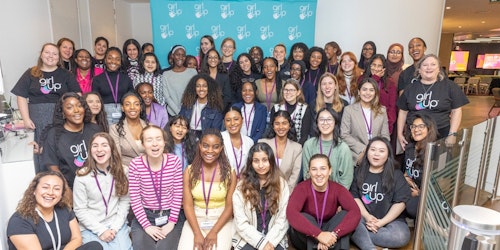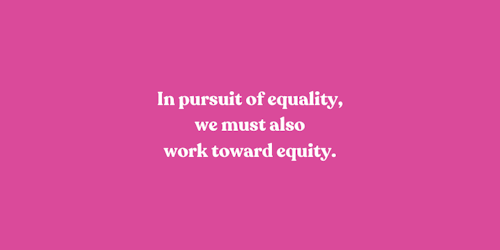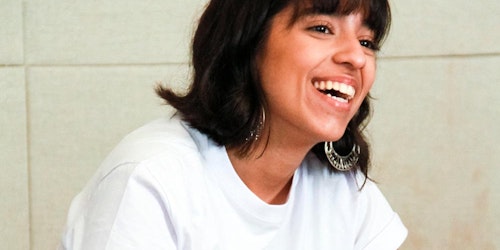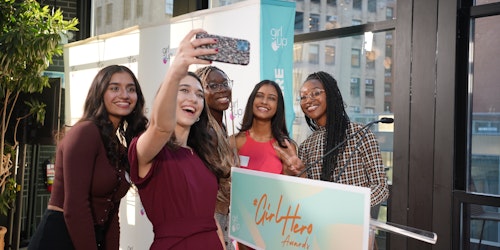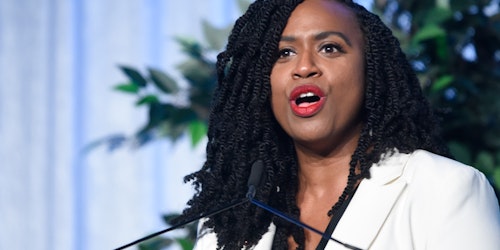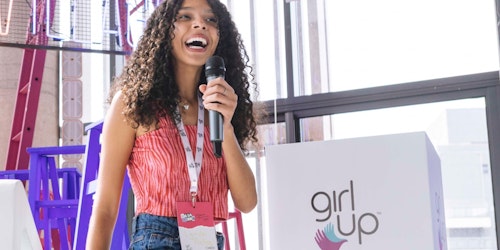My heart actually beats a little harder when I watch the Nike ad calling us all to show just ‘what crazy can do.’ I wish this ad was just a dramatized version of the less unequal reality of women in sports. That this was their experience, not mine. That things really did change once you won the US Open, made the World Team, competed at the Olympics. The truth is, the ad is painfully real. It is the closest, most honest depiction, most legitimate use of ‘advertising’ I’ve seen in a while. Because it shows what it is like, every single day, to be a female trying to do anything.
Nike represents athletes. Men, women, and every race and religion that comes to mind. I love the stand Nike has taken for women and for minorities. Additionally, while some of the push-back received by issues of gender are similar to those of race, some are not. I imagine that many people watch this ad, or any of the other controversial ads put out the past few years, and think, ‘This is clearly representing a small group of individuals..’ If I were to categorize these women, I would say they are the best of the best. The top 10% of female athletes in the world.
Popular opinion would agree. There are Olympians, there are pro athletes, there are consistently successful female athletes. These women outrank them all. These women are Olympic Champions, they are the Captains of their professional teams, and they are World Cup Gold Medalists. And they are blown off, shrugged off, ignored, not considered, not included and disrespected. It’s real and it trickles down.
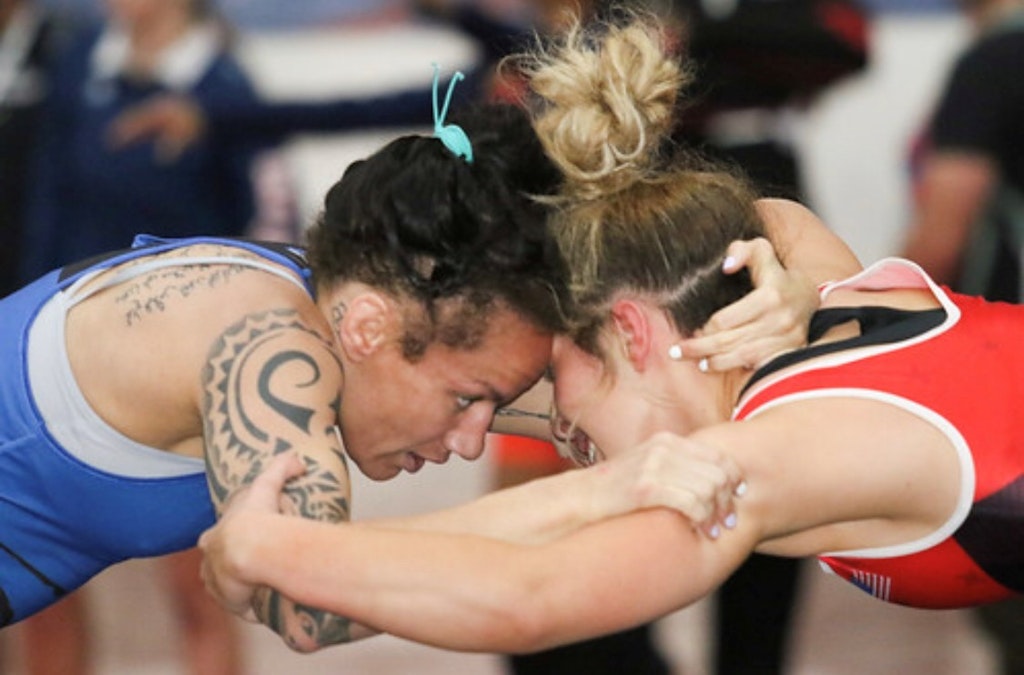
While I have had success, I would not categorize myself even on in their percentile. I have competed in the Olympics, winning the last two United States Olympic Trials. I have won the U.S. Open 4 times, made a couple of World Teams, medaled 5 times at the Pan American Championships (three of which were golds), I was the first female to wrestle for Arizona State University and the 12th in US history to wrestle for Division 1 program.
To be honest, as a female, I often struggle with when to be tough and put my head down and just work, and went to put my foot down and demand better. In 2013, I was chosen for a 9 month internship with eBay under the Marketing umbrella, and a phrase that one of my superiors coined, which not only stuck with me, but explained so many experiences of my past, present and future, was that “men are rewarded for their potential, while women are rewarded for their performance.” I can be non-bias and refer to my teammates who have also won multiple world and Olympic medals, that are considered ‘outspoken’ because they spoke.
As I struggled to put into words my experience with this, I reached out to a few of my trusted friends and teammates, all well-known pioneers of the young Olympic Sport of women’s wrestling. If you haven’t heard of Katherine Shai (formerly Fulp-Allen), Sarah Hidlebrandt, or Adeline Gray, a quick internet search will open your eyes to some of the most innovation women to break glass-ceilings of our time.
In former first lady Michelle Obama’s book “Becoming,” she shared of an experience as a young, ambitious student, experiencing this on her quest to studying at Princeton. In her meeting with the college counselor, she learned a lesson early on after the quickly forgotten women told Michelle she wasn’t sure she was Princeton material. The lesson was this: failure is a feeling long before it’s an actual result. The truth is, every single day there is a layer in the culture of athletics. It’s like the atmosphere, or a UV ray. You become used to it. You physically and physiologically adapt to it. But it’s there. Time, science and consequence teach you, for some of us once it’s too late, that you have to protect yourself, your health, and your sanity. So you ‘toughen up,’ you get ‘thicker skin,’ you work on ‘self help’ and listen to podcasts on ‘being more relatable and abundant.’ You become legitimized because after finally breaking through as an athlete, men in the sports world begin to take notice.
And because seeing the glass half full is more respectable than complaining, we run with it. We embrace the attention, notoriety and we accept the endorsements from male-run organizations because we fought so hard to get there how can we say no? How can we demand more? Shouldn’t we be grateful?
In reality, I am guilty of all the above. And like the damage of the always-present UV ray, we constantly forget current realities. Katherine reminded me of another equal truth:
“I think the idea is that we get put in a weird situation, and the stereotype is that the women won’t mind…When I discovered that a freestyle guy #5 on the chain was getting a 20k+ salary and health care paid for, I was SHOCKED to say the least. We have to continue to fight for our own value in our heads, why we need to still keep going, because no one is going to hand us a check and say, “here, I value you the idea that you COULD do something great.”
To provide context, Katherine has been on the ladder, ranging from the top spot to as low as #3. She consistently maintains a level of competitiveness, as a finalist in the US Open after giving birth to her first child. Her family (her father, Lee Allen leading the way), is hugely responsible for the presence of women’s wrestling and it’s growth in California, the still successful women’s team at Menlo College, and much more. If anyone is in a position to be shocked, it would be her. It’s not exclusively about money or exclusively about one thing or the other. It is about a big picture of equality from the outward to the very deep inward. The root.
And perhaps I’m too focused on the big picture. Maybe these are really big examples (I’d love to share more specific ones, but as a still competing athlete, some things really can’t be stated), and I need to represent and be a role model and focus on my craft. I know there’s room for improvement and I’m constantly reminded of that as my male counterparts (talented and mostly great men and representatives of the sport) overshadow the women on most platforms, in most discussions, in most circumstances.
Sarah graciously reminded me that it is actually the little things that create the bigness of it all. We discuss this topic regularly and while Sarah and I are both fierce competitors and love the sport and our journey, she couldn’t deny the reality in her response to my struggle to verbalize. She states:
I think it takes place a lot in expectation, as well. We are expected to practice harder, behave better. Anything really, it needs to be seen as better than what any man does, or else it’s not remotely taken seriously. The funny (frustrating) part is, often we will never live up to that in the man’s eye, despite us more than likely already displaying that extra effort.
I also find men not taking me seriously when I speak on technique or any logical part of sport as well. As if women have less knowledge in what they spend every waking moment towards.
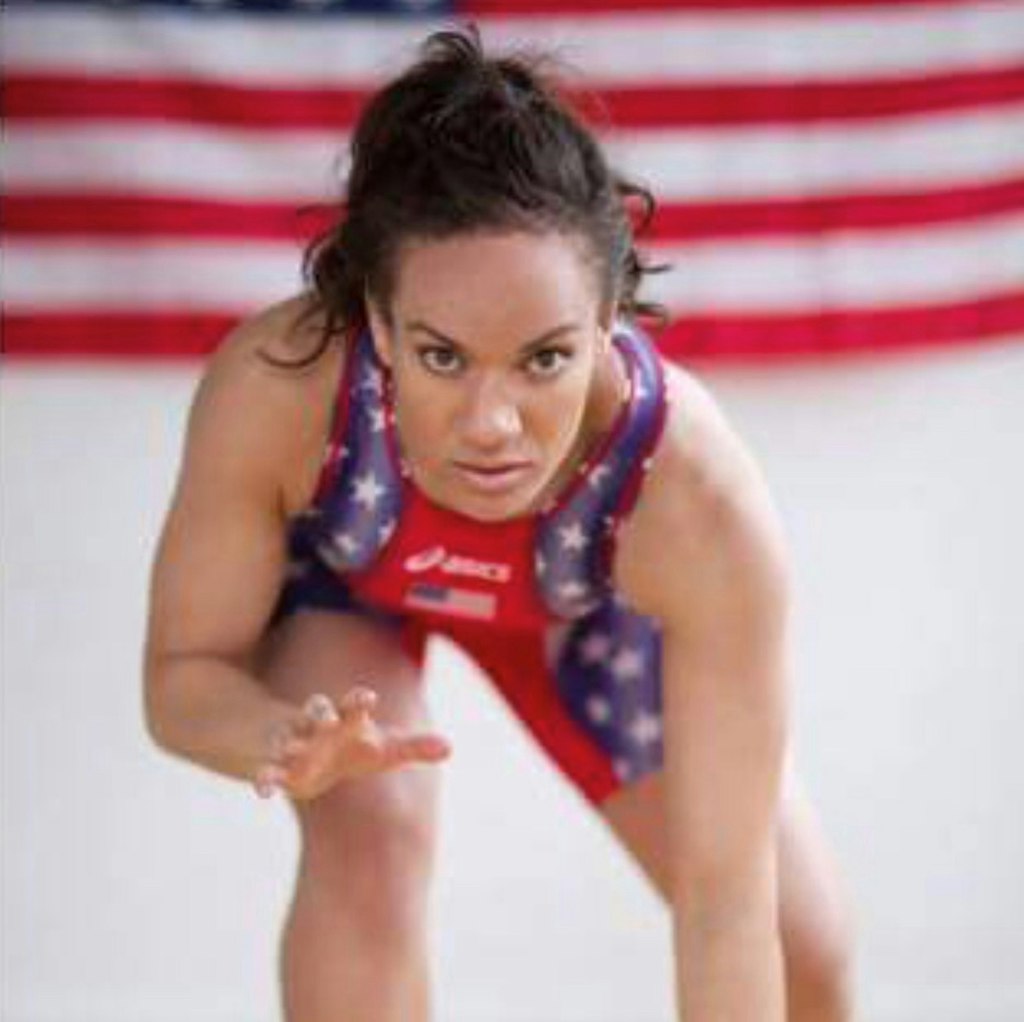
I remember my first year on the ASU roster. To be honest, without the men that led that program at the time, I may not have even had to the opportunity to begin with. They were skeptical, but they were open. And yet, without it ever being obtusely stated, I knew it was bigger than just wrestling with the guys October through March. I knew that no matter what happened on the mat, no matter how I was treated, no matter what the workout was, the sprints and conditioning, I always had to be right with them. I never partied. I never drank. I was never late. I had to get exceptional grades. This, of course, is the standard for all Division 1 athletes. But I was the female, so there wouldn’t be a slap on the hand. If I failed, I would be exactly what they thought I would be: not cut for it.
I had my Michelle Obama moment prior to the season starting with the assistant athletic director. I won’t get into detail what that meeting was like for me because it’s irrelevant. He is now my biggest fan and continues to be open to women being in that room. Much of that relied heavily on an above average lifestyle, grade point average, work ethic, and execution. Not to be great- just be to included. Not to receive a scholarship (I will be paying back student loans for a while), not to receiving a training stipend upon graduation (if you don’t know what this is, ask any Senior athlete training at a University). Just to be allowed in the door.
Often I have found that because I am so close to this, it can be difficult to maintain perspective. Adeline reminded that it’s not enough to throw institutions or individuals under the bus by calling out situations. It’s not enough to make anyone look bad (to be honest, the things my peers and I have experienced would), but we must aim higher. I love justice, but sometimes it is more powerful- more productive- to do what is right, rather than to be right. As she reminded me, there is a huge need for companies, sports organizations and people to put women in the room, to honor potential, to look, discover and foster it.
A call to action.
The ad impacted me of course. It truly evoked emotion into my spirit. But I already knew this existed. I already want change. What is the call to action? What is the ‘next step.’ This varies from category to category, from athletics to politics, to employment and pay. The list goes on. I do believe it begins with speaking up. With those of us in the arena, those of us women working to accomplish our goals and to break glass ceilings, we must work. Individually, work towards our version of excellence, be willing to fall, but to get up and work more. It may end beyond my lifetime, but I know that in some regard it begins with me and what I decide to do. As Brene Brown stated:
I’m gonna live in the arena. I’m going to be brave with my life. I’m going to show up. And here’s one thing I know with certainty:
If you’re brave with your life, if you choose to live in the arena: you’re going to get your @$$ kicked. You’re not going to risk failure, you’re going to KNOW failure, if you’re brave with your life… If you are not in the arena getting your @$$ kicked on occasion because you are being brave, I am not interested in or open to your feedback about my work.
Kelsey Campbell is an Olympic Wrestler and advocate for women and girls
